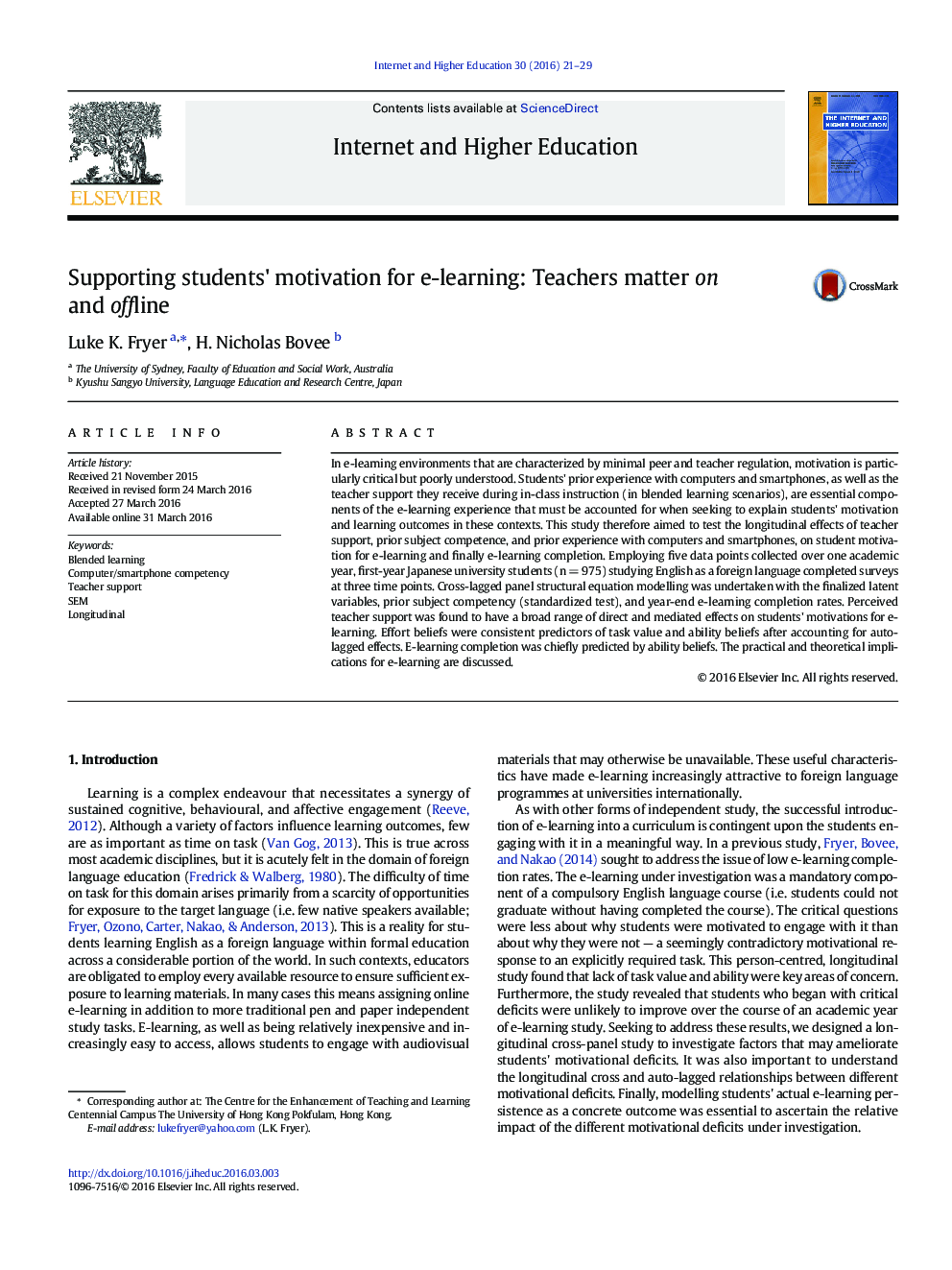| Article ID | Journal | Published Year | Pages | File Type |
|---|---|---|---|---|
| 357684 | The Internet and Higher Education | 2016 | 9 Pages |
•Perceived teacher support had a broad array of adaptive effects on future motivations for studying online.•Initial effort beliefs were important predictors for future value and ability related motivations for studying online.•In the fully-forward longitudinal model ability beliefs was the key predictor of year-end e-learning completion.•Female students were more motivated, reported more prior computer experience and less teacher support for studying online.
In e-learning environments that are characterized by minimal peer and teacher regulation, motivation is particularly critical but poorly understood. Students' prior experience with computers and smartphones, as well as the teacher support they receive during in-class instruction (in blended learning scenarios), are essential components of the e-learning experience that must be accounted for when seeking to explain students' motivation and learning outcomes in these contexts. This study therefore aimed to test the longitudinal effects of teacher support, prior subject competence, and prior experience with computers and smartphones, on student motivation for e-learning and finally e-learning completion. Employing five data points collected over one academic year, first-year Japanese university students (n = 975) studying English as a foreign language completed surveys at three time points. Cross-lagged panel structural equation modelling was undertaken with the finalized latent variables, prior subject competency (standardized test), and year-end e-learning completion rates. Perceived teacher support was found to have a broad range of direct and mediated effects on students' motivations for e-learning. Effort beliefs were consistent predictors of task value and ability beliefs after accounting for auto-lagged effects. E-learning completion was chiefly predicted by ability beliefs. The practical and theoretical implications for e-learning are discussed.
